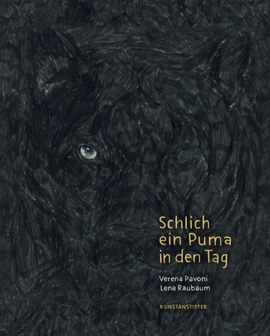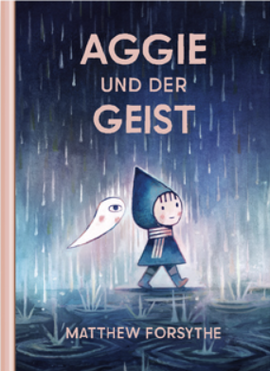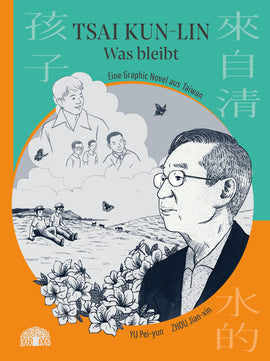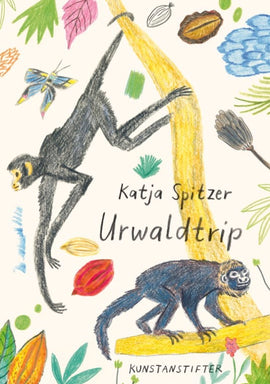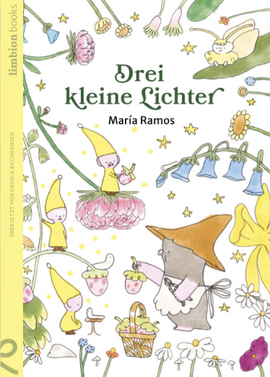Maimun / Bilderbuch Deutsch / Sahar Abdallah
Für Kinder ab 5 Jahren.
Das Mädchen Tuha lebt in Kairo. Zur Familie gehört, wie in Ägypten gar nicht unüblich, auch ein Affe. Tuha hat ihm dem Namen Maimun gegeben, das bedeutet «glücklicher Affe». Die beiden sind unzertrennlich und auch meist mit dabei, wenn der Vater als Gaukler auf den Strassen der Stadt aufspielt. Die Zuschauer bleiben stehen und applaudieren. Und doch sind die Münzen am Ende des Tages spärlich und reichen kaum, um das tägliche Brot zu kaufen.
Tuha sieht die Sorgenfalten auf der Stirn des Vaters. Er will doch nicht etwa Maimun weggeben? Bald darauf kommt der Vater mit einem Esel nach Hause. Er versucht, ihm ein paar Kunststücke beizubringen, doch der Esel iaht bloss. Da spannt er ihn eines Morgens vor einen Karren und macht sich auf den Weg, um auf dem Markt Orangen zu verkaufen.
Dank Tuhas Beharrlichkeit und Maimuns Geschick wendet sich die Sache zum Guten. So eine Darbietung hat noch niemand zuvor gesehen … Es geht nicht lang und die Menschen scharen sich um sie herum. Nach dem Applaus sind die saftigen Orangen schnell verkauft, und am Ende des Tages hat nicht nur Tuha, sondern auch der Vater wieder ein Lachen auf dem Gesicht.
Schon in alten Zeiten wurde der Affe in Ägypten als heiliges Tier verehrt und künstlerisch auf vielfältige Weise dargestellt. Mit ihrem präzise geführten Zeichenstift und szenisch eingesetzten Farben interpretiert Sahar Abdallah in diesem Buch die ägyptische Kunsttradition auf ihre eigene Weise.
-----------------------------------------------------------------------------------------------
For children aged 5 and over.
The girl Tuha lives in Cairo. As is not uncommon in Egypt, her family also includes a monkey. Tuha has given him the name Maimun, which means “happy monkey”. The two are inseparable and usually join in when their father performs as a juggler on the streets of the city. The spectators stop and applaud. And yet, at the end of the day, the coins are scarce and barely enough to buy their daily bread.
Tuha sees the worry lines on his father's forehead. Surely he doesn't want to give Maimun away? Soon afterwards, the father comes home with a donkey. He tries to teach him a few tricks, but the donkey just eats. So one morning he harnesses him to a cart and sets off to sell oranges at the market.
Thanks to Tuha's perseverance and Maimun's skill, things turn out well. No one has ever seen a performance like this before ... It doesn't take long for people to gather around them. After the applause, the juicy oranges are quickly sold and at the end of the day, not only Tuha but also his father has a smile on his face again.
Even in ancient times, the monkey was revered as a sacred animal in Egypt and depicted artistically in a variety of ways. In this book, Sahar Abdallah interprets the Egyptian art tradition in her own way with her precise pencil and scenic use of color.
© 2024 Baobab Books
| Titel | Maimun / Bilderbuch Deutsch / Sahar Abdallah |
| Kurator | mundo azul |
| Typ | Bilderbuch Deutsch |
| Online seit | Nov 22, 2024 |
Für Kinder ab 5 Jahren.
Das Mädchen Tuha lebt in Kairo. Zur Familie gehört, wie in Ägypten gar nicht unüblich, auch ein Affe. Tuha hat ihm dem Namen Maimun gegeben, das bedeutet «glücklicher Affe». Die beiden sind unzertrennlich und auch meist mit dabei, wenn der Vater als Gaukler auf den Strassen der Stadt aufspielt. Die Zuschauer bleiben stehen und applaudieren. Und doch sind die Münzen am Ende des Tages spärlich und reichen kaum, um das tägliche Brot zu kaufen.
Tuha sieht die Sorgenfalten auf der Stirn des Vaters. Er will doch nicht etwa Maimun weggeben? Bald darauf kommt der Vater mit einem Esel nach Hause. Er versucht, ihm ein paar Kunststücke beizubringen, doch der Esel iaht bloss. Da spannt er ihn eines Morgens vor einen Karren und macht sich auf den Weg, um auf dem Markt Orangen zu verkaufen.
Dank Tuhas Beharrlichkeit und Maimuns Geschick wendet sich die Sache zum Guten. So eine Darbietung hat noch niemand zuvor gesehen … Es geht nicht lang und die Menschen scharen sich um sie herum. Nach dem Applaus sind die saftigen Orangen schnell verkauft, und am Ende des Tages hat nicht nur Tuha, sondern auch der Vater wieder ein Lachen auf dem Gesicht.
Schon in alten Zeiten wurde der Affe in Ägypten als heiliges Tier verehrt und künstlerisch auf vielfältige Weise dargestellt. Mit ihrem präzise geführten Zeichenstift und szenisch eingesetzten Farben interpretiert Sahar Abdallah in diesem Buch die ägyptische Kunsttradition auf ihre eigene Weise.
-----------------------------------------------------------------------------------------------
For children aged 5 and over.
The girl Tuha lives in Cairo. As is not uncommon in Egypt, her family also includes a monkey. Tuha has given him the name Maimun, which means “happy monkey”. The two are inseparable and usually join in when their father performs as a juggler on the streets of the city. The spectators stop and applaud. And yet, at the end of the day, the coins are scarce and barely enough to buy their daily bread.
Tuha sees the worry lines on his father's forehead. Surely he doesn't want to give Maimun away? Soon afterwards, the father comes home with a donkey. He tries to teach him a few tricks, but the donkey just eats. So one morning he harnesses him to a cart and sets off to sell oranges at the market.
Thanks to Tuha's perseverance and Maimun's skill, things turn out well. No one has ever seen a performance like this before ... It doesn't take long for people to gather around them. After the applause, the juicy oranges are quickly sold and at the end of the day, not only Tuha but also his father has a smile on his face again.
Even in ancient times, the monkey was revered as a sacred animal in Egypt and depicted artistically in a variety of ways. In this book, Sahar Abdallah interprets the Egyptian art tradition in her own way with her precise pencil and scenic use of color.
© 2024 Baobab Books

